 Technology peripherals
Technology peripherals AI
AI NVIDIA is replicating its successful experience in AI to quantum computing
NVIDIA is replicating its successful experience in AI to quantum computingThis article is reproduced from Lei Feng.com. If you need to reprint, please go to the official website of Lei Feng.com to apply for authorization.
To some people, quantum computing (Quantum computer) may sound like science fiction, a scenario decades away.
In fact, many people around the world have already invested in this cutting-edge computing research. There are more than 2,100 quantum computing research papers published, more than 250 quantum computing start-up companies, and 22 National policies related to quantum computing.

Quantum computing is a new computing model that follows the laws of quantum mechanics to regulate quantum information units for calculation. It is usually compared with classical computing. . From a principle point of view, quantum computing can have calculation speeds faster than classical computing, and this gap may be as high as a trillion times.
Quantum computing is expected to overcome many challenges faced today and promote the development of various tasks from drug research and development to weather forecasting, and can play a huge role in future HPC. Because of this, a large number of companies and researchers are investing resources into studying quantum computing.
Currently, there are many options for physical platforms to achieve quantum computing, such as superconductors, ion traps, neutral atoms, silicon quantum, light quantum, etc. However, they all face different challenges. .
To accelerate the development of quantum computing, Hybrid quantum computing is expected to realize the first practical applications of quantum computing.
The so-called hybrid quantum computing means that quantum computers and classical computers work together to give full play to the advantages of classical computing (such as CPU and GPU) in traditional operations, such as circuit optimization, correction and error correction, and Advantages of system-level quantum processors (QPUs) as new accelerators.
Compared with CPU, GPU is a good choice for hybrid quantum computing, because GPU can shorten the execution time of traditional jobs and greatly reduce the communication delay between classical computers and quantum computers. , which is the main bottleneck facing today’s hybrid quantum operations.

Meanwhile, another big challenge is software tools. As an emerging piece of hardware, quantum processors need to be programmed to realize their value. Researchers can only use quantum equivalent to low-level assembly code. In other words, only quantum computing experts can program quantum accelerators. #This also makes it difficult to promote the rapid development of quantum computing. Therefore,
The field of quantum computing requires a unified programming model and compiler tool chain.The compiler allows scientists to easily port part of their HPC applications to a simulated QPU and then to a real QPU, efficiently finding ways to accelerate quantum computing work.
With GPU-accelerated simulation tools, programming models, and compiler toolchains all brought together, HPC researchers can begin building the hybrid quantum data center of the future.Nvidia, which has industry-leading high-performance GPUs and extensive experience in HPC and AI, can help it quickly establish unique products and advantages in the field of quantum computing.
Nvidia has indeed begun to copy its successful experience in the field of AI to the field of quantum computing. Starting from the latest software for developers, lowering the threshold for developers to use it, helping developers in the field of quantum computing solve problems and create value.
Once quantum computing researchers and users choose NVIDIA's tools, they will naturally It can help Nvidia seize the opportunity in the field of quantum computing.At GTC 2021, NVIDIA announced the launch of cuQuantum SDK, which aims to accelerate quantum circuit simulations running on GPUs. Today, dozens of quantum organizations are already using the cuQuantum software development kit to accelerate their quantum circuit simulations on GPUs.
Recently, AWS provided cuQuantum in the Braket service and demonstrated that
cuQuantum achieved 900 times acceleration on quantum machine learning workloads while reducing costs by 3.5 times.Another important value of cuQuantum in promoting the development of quantum computing lies in its ability to implement accelerated computing on major quantum software frameworks, including Google's qsim and IBM's Qiskit Aer , Xanadu’s PennyLane and Classiq’s Quantum Algorithm Design platform.
For scientists and developers, users of these frameworks can access GPU acceleration without any further coding. For Nvidia, it will mean its important value in the quantum computing software framework, as well as giving full play to the role of its GPU in hybrid quantum computing.
On July 12, 2022, NVIDIA continued to move forward in the field of quantum computing and released QODA, a unified computing platform.

The goal of Quantum Optimized Device Architecture (QODA) is to make quantum computing more accessible by creating a coherent hybrid quantum classical programming model. QODA also enables experts in the HPC and AI fields to easily port their applications to public clouds, NVIDIA DGX systems, or supercomputing centers equipped with a large number of NVIDIA GPUs.
For quantum organizations already using the cuQuantum software development kit, NVIDIA QODA enables developers to build complete quantum applications that can be simulated on GPU-accelerated supercomputers with NVIDIA cuQuantum .
Like AI and high-performance computing, ecology is the key to success, so software and hardware partners are crucial to NVIDIA's success in the field of quantum computing.
Q2B 22 At the Tokyo Quantum Computing Conference, Nvidia announced partnerships with quantum hardware vendors IQM quantum Computers, Pasqal, Quantum, Quantum Brilliance and Xanadu, software vendors QC Ware and Zapata Computing, and supercomputing centers The German Jurich Research Center, Lawrence Berkeley National Laboratory and Oak Ridge National Laboratory are cooperating on QODA.

NVIDIA CEO Jensen Huang has always emphasized that what NVIDIA needs to do is to create new products and markets, rather than seize existing markets. Quantum computing is such a brand-new market. Nvidia’s choice of technical route and entry point in the field of quantum computing will help it seize the opportunity of quantum computing.
But we must also note that quantum computing still has a long way to go, and it is still difficult to determine who can have quantum hegemony.
The above is the detailed content of NVIDIA is replicating its successful experience in AI to quantum computing. For more information, please follow other related articles on the PHP Chinese website!
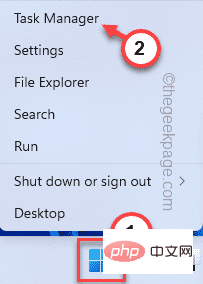 NVIDIA 控制面板无法在 Windows 11 中打开/工作问题修复Apr 13, 2023 pm 11:10 PM
NVIDIA 控制面板无法在 Windows 11 中打开/工作问题修复Apr 13, 2023 pm 11:10 PMNVIDIA 控制面板包含您可以调整的所有内容和设置,以提取显卡的全部功能。因此,当 NVIDIA 控制面板停止工作时,您无法更改许多想要更改的设置,除非您找到修复程序以再次制作 NVIDIA 控制面板。修复 1 – 杀死所有 NVIDIA 进程您必须终止所有 NVIDIA 进程并重新启动文件资源管理器进程。1. 尝试打开 NVIDIA 控制面板。Windows 将尝试启动 NVIDIA 控制面板。它不会打开。不用担心。2. 现在,只需右键单击 Windows 图标,然后点击“任务管理器”。4.
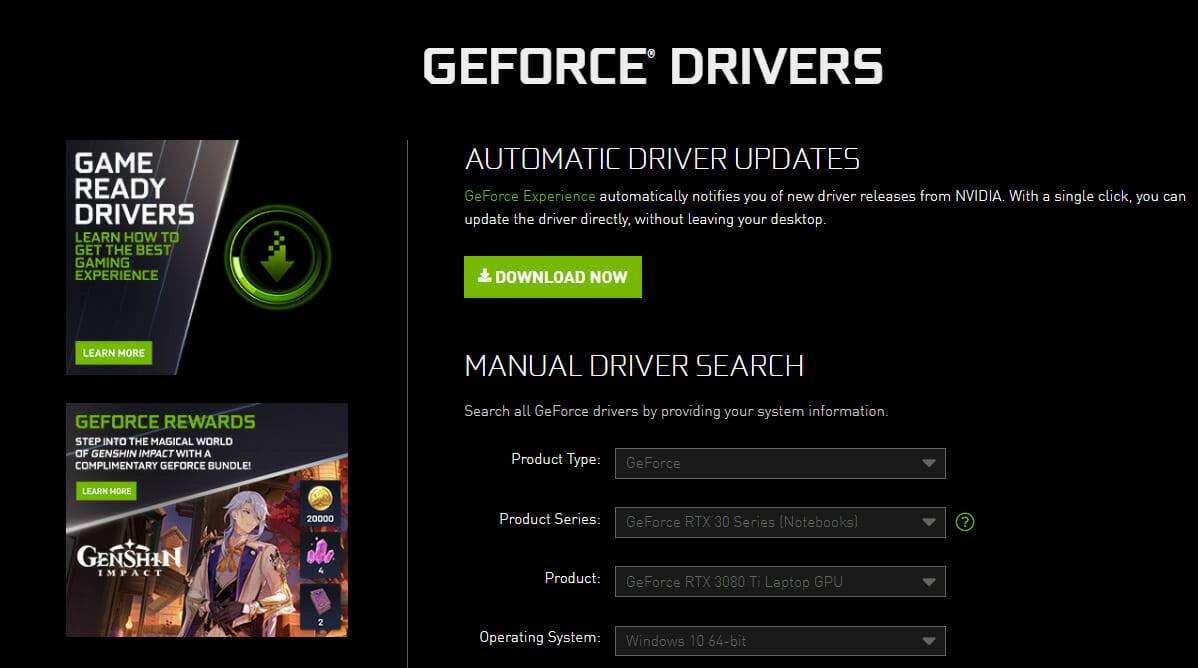 NVIDIA 安装程序无法继续?4个简单的方法来解决它Jun 03, 2023 am 09:52 AM
NVIDIA 安装程序无法继续?4个简单的方法来解决它Jun 03, 2023 am 09:52 AMNVIDIA安装程序无法继续是一条错误消息,会阻止您为显卡安装驱动程序。无论您尝试在计算机上安装多少次,您几乎肯定会一遍又一遍地收到相同的消息。此外,此错误发生在各种驱动程序和Windows迭代中,表明存在多种潜在原因。也就是说,它不排除任何人,对于许多用户来说,解决问题可能是一种令人沮丧的体验。幸运的是,以下方法中的一种(如果不是更多)很有可能对您有效,因此请继续阅读以找出哪种方法最有效。即使驱动安装失败,在您下载并安装驱动后,安装操作系统的分区中也会创建一个NVIDIA文件夹。这是因为它会在
 NVIDIA控制面板打不开问题修复May 19, 2023 pm 03:22 PM
NVIDIA控制面板打不开问题修复May 19, 2023 pm 03:22 PM在Windows中,NVIDIA控制面板基本上是一种用于管理显卡中的图形驱动程序设置和NVIDIA实用程序的工具。显卡对于游戏、3D动画和渲染视频非常重要。所以,我们需要一个控制面板来管理显卡的设置。它将帮助用户更改显示质量、大小、方向等。有时由于使用了错误的图形驱动程序,控制面板无法打开或工作。每个图形适配器都有一个特定的图形驱动程序,因此选择正确的驱动程序将为您提供最佳的游戏优化。在某些情况下,系统中使用的防病毒软件可能会产生一些干扰。让我们看看解决此问题的一些方法NVIDIA无法
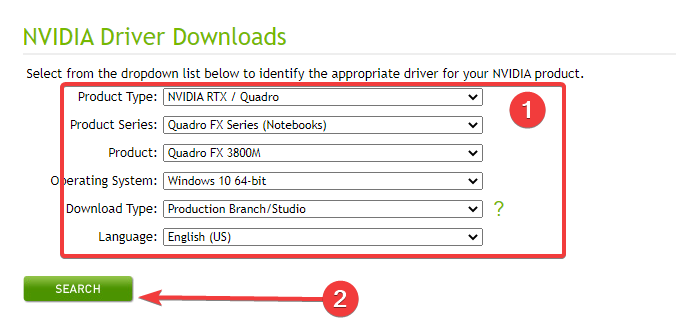 在 Windows 11 上使用的最佳 Nvidia 驱动程序是什么?May 22, 2023 pm 04:12 PM
在 Windows 11 上使用的最佳 Nvidia 驱动程序是什么?May 22, 2023 pm 04:12 PMNVIDIA生产了许多业内最佳的显卡。多年来,它不断为PC游戏玩家、动画师、平面设计师、视频编辑和其他GPU密集型职业提供GPU。但是,您必须确保在您的操作系统上使用兼容的NVIDIA驱动程序。虽然Windows11具有适应性,但并非您在其他操作系统上使用过的所有驱动程序都可以正常工作。在这里,我们将分享与Windows11PC兼容的最佳NVIDIA显卡驱动程序。最后,您可以按照几个简单的步骤来纠正NVIDIA控制面板的问题,而不是打开.Windows11是否有N
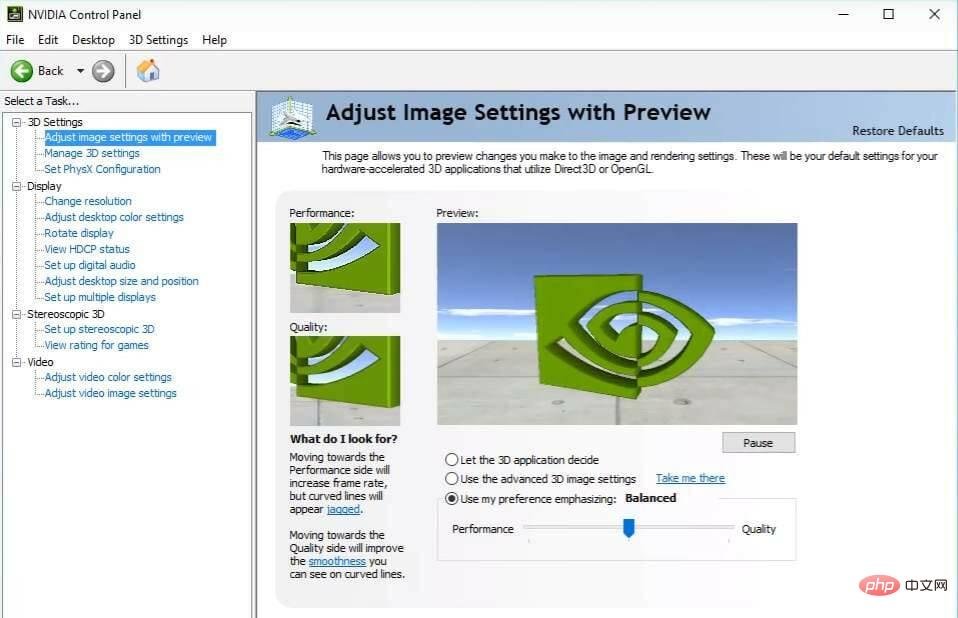 修复 Windows 11 中缺少的 NVIDIA 控制面板的 5 个技巧Apr 19, 2023 pm 05:10 PM
修复 Windows 11 中缺少的 NVIDIA 控制面板的 5 个技巧Apr 19, 2023 pm 05:10 PM几位NVIDIA显卡用户报告说,Windows11中缺少NVIDIA控制面板。造成这种情况的可能原因有多种,包括显卡驱动程序错误、软件过时、注册表子项和值丢失,或随机错误。除了提供对NVIDIA图形驱动程序设置的控制之外,该面板还允许您访问和使用您可能已安装在系统上的其他NVIDIA实用程序。建议您在获得运行显卡所需的驱动程序后立即下载并在您的设备上安装NVIDIA控制面板。该软件的使用对于那些使用3D应用程序或狂热的Windows游戏玩家特别有益。您可以详细了解您的系统在使
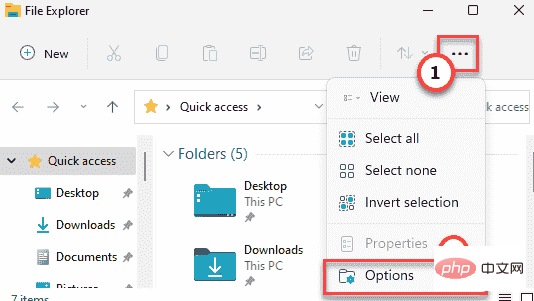 修复:没有 Dc 水印 NVIDIA / 游戏 - 屏幕左上角的 Adobe 没有 DcApr 30, 2023 am 08:22 AM
修复:没有 Dc 水印 NVIDIA / 游戏 - 屏幕左上角的 Adobe 没有 DcApr 30, 2023 am 08:22 AM一些NVIDIAStudio驱动程序用户最近报告了在AdobePremierePro应用程序上看到“NODC”水印的问题。一些用户还报告说也看到了“YESDC”水印。但是,别担心。这都是由于NVIDIA核心文件中的bin文件损坏所致。因此,只需在文件资源管理器中找到该文件并删除损坏的文件,然后重新启动即可解决问题。或者,您可以只恢复默认的NVIDIA3d设置。按照这些修复程序快速解决问题。修复1–删除NVIDIAbin文件按照以下步骤从系统中删除n
 和TensorFlow一样,英伟达CUDA的垄断格局将被打破?Apr 13, 2023 pm 01:04 PM
和TensorFlow一样,英伟达CUDA的垄断格局将被打破?Apr 13, 2023 pm 01:04 PM十年来,机器学习软件开发的格局发生了重大变化。许多框架如雨后春笋般涌现,但大多数都严重依赖于英伟达的 CUDA,并在英伟达的 GPU 上才能获得最佳的性能。然而,随着 PyTorch 2.0 和 OpenAI Triton 的到来,英伟达在这一领域的主导地位正在被打破。谷歌早期在机器学习模型架构、训练、模型优化方面都具有很大优势,但现在却难以充分发挥这些优势。而在硬件方面,其他 AI 硬件公司很难削弱英伟达的统治地位。直到 PyTorch 2.0 和 OpenAI Triton 出现,机器学习
 英伟达发布ChatGPT专用GPU,推理速度提升了10倍May 13, 2023 pm 11:04 PM
英伟达发布ChatGPT专用GPU,推理速度提升了10倍May 13, 2023 pm 11:04 PM曾何几时,人工智能因为算力不足进入了长达数十年的瓶颈,GPU点燃了深度学习。在ChatGPT时代,AI因为大模型再次面临算力不足的问题,这一次英伟达还有办法吗?3月22日,GTC大会正式召开,在刚刚进行的Keynote上,英伟达CEO黄仁勋搬出了为ChatGPT准备的芯片。「加速计算并非易事,2012年,计算机视觉模型AlexNet动用了GeForceGTX580,每秒可处理262PetaFLOPS。该模型引发了AI技术的爆炸,」黄仁勋说道。「十年之后,Tr


Hot AI Tools

Undresser.AI Undress
AI-powered app for creating realistic nude photos

AI Clothes Remover
Online AI tool for removing clothes from photos.

Undress AI Tool
Undress images for free

Clothoff.io
AI clothes remover

AI Hentai Generator
Generate AI Hentai for free.

Hot Article

Hot Tools

Zend Studio 13.0.1
Powerful PHP integrated development environment

Notepad++7.3.1
Easy-to-use and free code editor

Atom editor mac version download
The most popular open source editor

SAP NetWeaver Server Adapter for Eclipse
Integrate Eclipse with SAP NetWeaver application server.

MinGW - Minimalist GNU for Windows
This project is in the process of being migrated to osdn.net/projects/mingw, you can continue to follow us there. MinGW: A native Windows port of the GNU Compiler Collection (GCC), freely distributable import libraries and header files for building native Windows applications; includes extensions to the MSVC runtime to support C99 functionality. All MinGW software can run on 64-bit Windows platforms.





